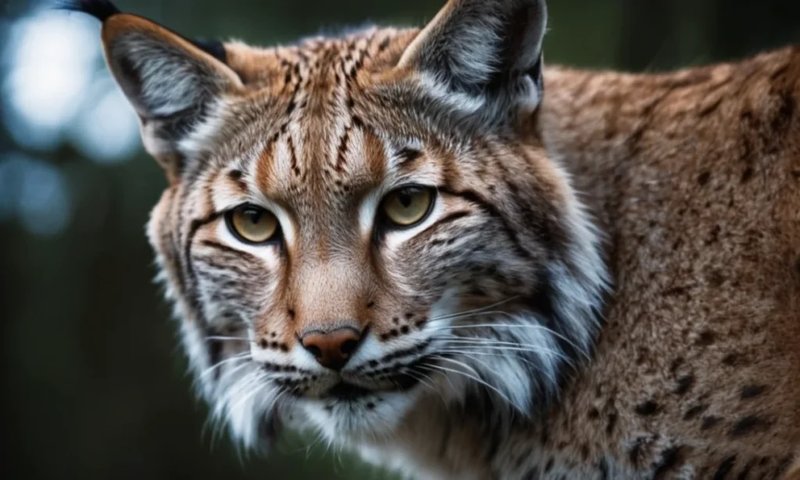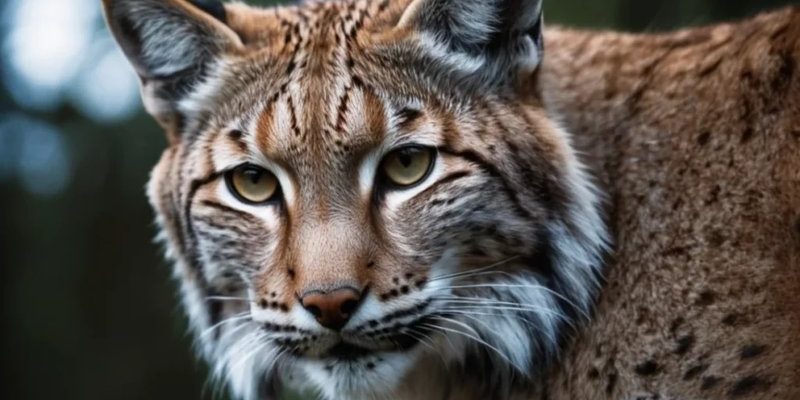
Imagine sipping coffee with a friend as they share stories about a creature that walks silently through the forest, almost like a ghost. The lynx, often shrouded in myth and legend, has been a part of human storytelling for ages. From ancient European myths to Native American legends, this wild cat appears in various contexts, revealing much about the cultures that revere it. So, why is the lynx such a powerful symbol? Let’s dive into the fascinating world of lynx representation in culture and folklore.
The Lynx in European Folklore
In Europe, the lynx has often symbolized intuition and wisdom. Ancient tales tell of the lynx’s incredible eyesight, making it a natural metaphor for heightened perception. People believed that the lynx could see things hidden from ordinary sight, both physically and metaphorically. Maybe that’s why in many cultures, the lynx is associated with clairvoyance and prophetic abilities.
For instance, in Scandanavian folklore, the lynx is sometimes seen as a guardian spirit. Hunters would share stories about encountering these solitary cats, believing they were guides leading them to success in their endeavors. This ties into the idea that the lynx’s presence often symbolizes a deeper understanding of one’s surroundings. Honestly, how cool is it that an animal can hold such weight in human stories and beliefs?
As we look deeper into European folklore, some tales even portray the lynx as a keeper of secrets. In many stories, the lynx guards hidden treasures or knowledge, waiting for the worthy to uncover them. This aspect emphasizes the lynx’s elusive nature; after all, it’s not just about seeing the physical animal, but understanding the mysteries of life it represents.
The Lynx in Native American Traditions
In Native American culture, the lynx has a revered place, often viewed as a symbol of knowledge and secrets. Many tribes tell stories where the lynx serves as a teacher, conveying important lessons about the natural world. Here, the lynx is much more than a wild animal; it represents the wisdom that comes from connection with nature.
For example, the Iroquois people regard the lynx as a guardian of the natural order. They believe that by observing the lynx, one can gain insights into life’s rhythms and the balance of nature. This respect for the lynx mirrors the profound connection many Indigenous cultures maintain with wildlife, seeing it not just as animals, but as essential players in a much larger story.
Interestingly, the lynx is also associated with dreams and spirituality in some traditions. Stories often depict the lynx as a spirit guide that helps individuals navigate their dreams, revealing hidden truths and insights. So, if you’ve ever had a dream that felt larger than life, you might just find a connection to the wisdom of the lynx lurking in its depths.
The Lynx in Modern Literature and Media
The lynx has found its way into modern literature and media, often representing the themes of mystery and intelligence. In various novels and films, the lynx is portrayed as a cunning creature, sometimes even a protagonist or a key figure in a story. You might be surprised to learn that many authors use the lynx as a symbol to explore deeper concepts, like the quest for knowledge or the unearthing of hidden truths.
Take, for example, the work of Canadian author Farley Mowat. In his writings, the lynx often appears as a metaphor for the untamed wilderness, focusing on themes of survival and instinct. By echoing traditional stories, contemporary works continue to keep the spirit of the lynx alive, reminding us of its larger significance in our understanding of nature.
Additionally, with popular wildlife documentaries, the lynx has gained visibility and admiration in modern culture. These programs showcase the life of the lynx, highlighting its adaptability and mystery, while also emphasizing the importance of conservation. It seems that even in our digital age, the lynx remains a powerful symbol of nature’s wonders and mysteries.
The Lynx and Symbolism in Art
Art has a unique way of capturing the essence of animals, and the lynx is no exception. Throughout history, artists have used the lynx as a symbol of wisdom, stealth, and mystery. From ancient pottery to contemporary paintings, the lynx’s striking features and elusive nature make it a fascinating subject.
In different cultures, artists depict the lynx using various stylistic approaches. For example, in European art, the lynx often appears in works that emphasize its sharp eyes and graceful body, symbolizing its ability to see beyond the surface. Whether in classic art or modern pieces, the lynx serves as a reminder of nature’s beauty and the wisdom it can impart.
Moreover, in some Indigenous artworks, the lynx is represented in ways that connect deeply with spirituality and storytelling. These pieces often illustrate the lynx’s role as a guide or protector, showcasing its importance in cultural narratives. It’s intriguing to see how the representation of the lynx in art can reflect broader themes of connection, respect, and the coexistence of humans and nature.
The Lynx in Spiritual Beliefs and Practices
Various cultures have integrated the lynx into their spiritual practices, often regarding it as a powerful spiritual guide. Many believe that the lynx possesses the ability to enhance intuition and vision, helping individuals connect with their inner selves. In this context, the lynx becomes a key player in personal growth and self-discovery.
For instance, some shamanic traditions view the lynx as a spirit animal that can help individuals navigate through life’s challenges. Losing sight of your path? Calling on the lynx can encourage you to trust your instincts and intuition. It’s like having a personal mentor guiding you through the complexities of life.
Additionally, rituals involving the lynx often celebrate its qualities of independence and self-awareness. Practitioners might honor the lynx through specific ceremonies, inviting its energy into their lives. This deep connection to the lynx serves as a reminder of the importance of balance, self-reflection, and the quest for knowledge.
The lynx continues to resonate deeply across cultures and time. Whether it’s through ancient folklore, modern literature, art, or spiritual beliefs, this elusive creature represents a blend of wisdom, mystery, and intuition. You might find it fascinating to think about how the lynx connects people to the natural world, encouraging a deeper understanding of ourselves and our environment.
As we navigate through life, embracing the lessons of the lynx can remind us to trust our instincts, seek knowledge, and appreciate the beauty around us. So, the next time you spot a lynx in a book, a painting, or even out in nature, take a moment to reflect on the rich cultural tapestry woven around this remarkable animal. The lynx isn’t just a wild cat; it’s a symbol of the profound connection we share with the world.

